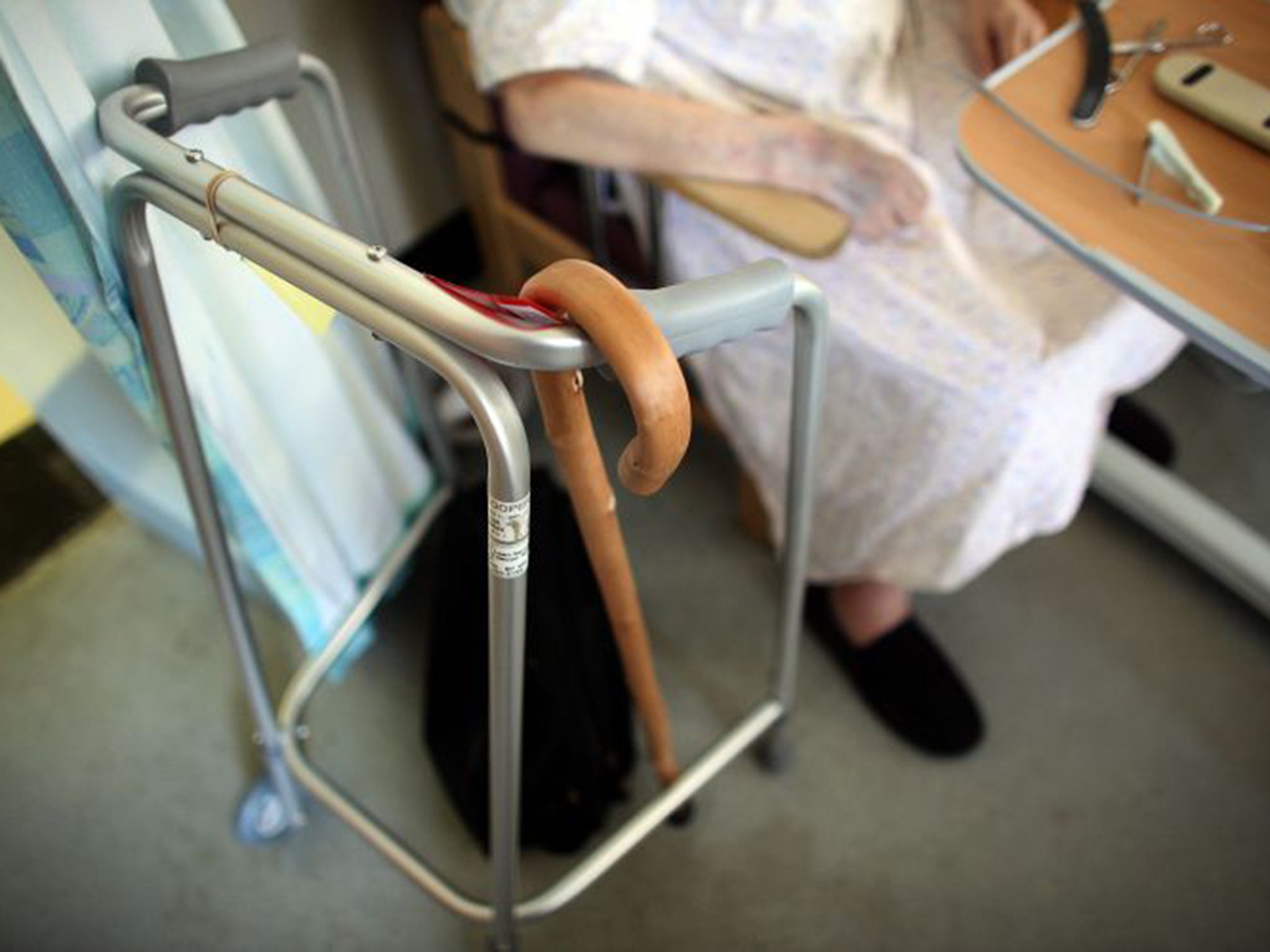More than 2.3 million elderly people are missing out on vital social care, says Labour
Older people in the most deprived areas are more likely to miss out on much-needed help with everyday tasks

More than 2.3 million older people are missing out on vital social care to help them with basic tasks, with deprived communities most likely to lose out, new analysis shows.
Labour warned that the “quality of care is on a precipice” as providers face significant financial pressures, with cuts on council funding due to spiral to £6.3bn by next year amid increasing demand from the ageing population.
Older people in the most deprived areas were significantly more likely to have unmet care needs than their more affluent peers, according to analysis of an official survey of thousands of people in England.
It comes amid warnings of intense pressures on the wider health service, as increased demand, tightening budgets and poor working conditions have seen more than 100,000 NHS jobs lying vacant.
Analysis of data from the Health Survey of England 2016 shows that more than 534,000 people in the most deprived areas missed out on help for tasks such as going to the toilet and getting out of bed – which is 110,696 more than in the most affluent neighbourhoods.
Shadow care minister Barbara Keeley said: “These figures reinforce the damage that reckless Tory cuts are doing to older people with growing care needs.
“Cuts to social care since 2010 are set to reach £6.3bn by March 2018, the funding gap continues to grow year on year and quality of care is on a precipice.
“Yet there was no money in the Budget to deal with this crisis created in Downing Street, kicking social care into the long grass, with no plans to halt the crisis now.”
Social care has proved a stumbling block for Theresa May after she was forced to make an embarrassing U-turn on her manifesto pledge to increase the amount people paid towards their care – which was dubbed “dementia tax” by critics.
A long-awaited overhaul of social care funding has also been delayed after First Secretary of State Damian Green quietly released a statement deferring the publication of a green paper until summer 2018.
Town hall leaders condemned the lack of funding for adult social care in last month’s Budget, as they predict a £2.3bn funding gap by 2020.
Izzi Seccombe, Tory chair of the Local Government Association’s (LGA) Community Wellbeing Board, said: “Social care need is greater in more deprived areas and this, in turn, places those councils under significant financial pressures.
“Allowing councils to increase council tax to pay for social care, while helpful in some areas, is of limited use in poorer areas because their weaker tax base means they are less able to raise funds.
“In more deprived areas there is also likely to be a higher number of people who rely on councils to pay for their care. This, in turn, puts even more pressure on the local authority.
“If we are to bridge the inequality gap in social care, we need long-term sustainable funding for the sector.”
The Government has said it needs more time to find a long-term solution for problems in adult social care, as care shortages have a knock-on effect on the NHS by keeping people in hospital who are otherwise well enough to go home.
A Department of Health spokesperson said: “We expect councils to ensure vulnerable people have access to prompt, dignified care if they need it.
“Spending on social care this year increased compared to last year and we’ve given social care an extra £2bn over the next three years. Next summer we will consult on reforming social care to help ensure it is sustainable for the future.”
Join our commenting forum
Join thought-provoking conversations, follow other Independent readers and see their replies
Comments
Bookmark popover
Removed from bookmarks